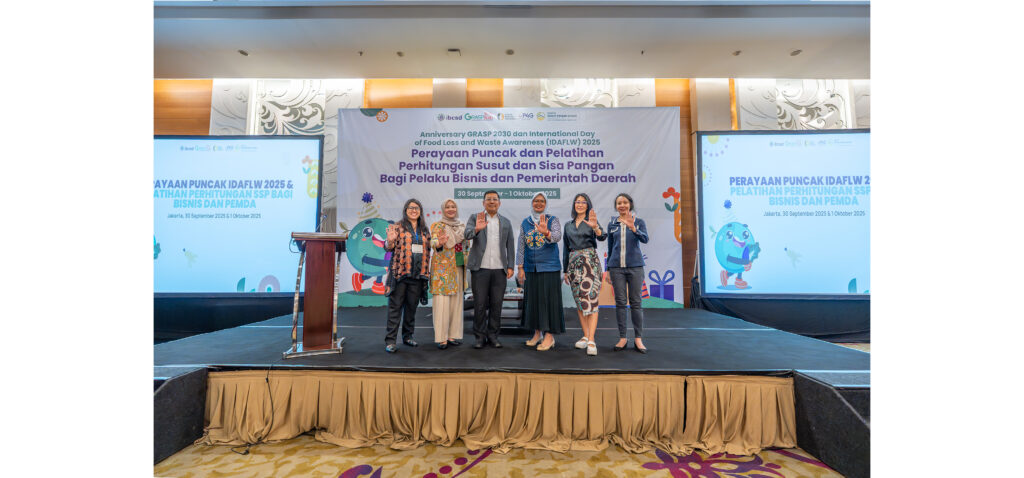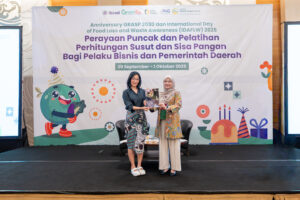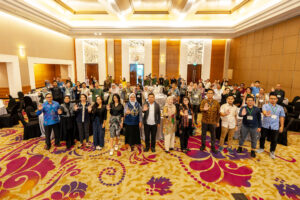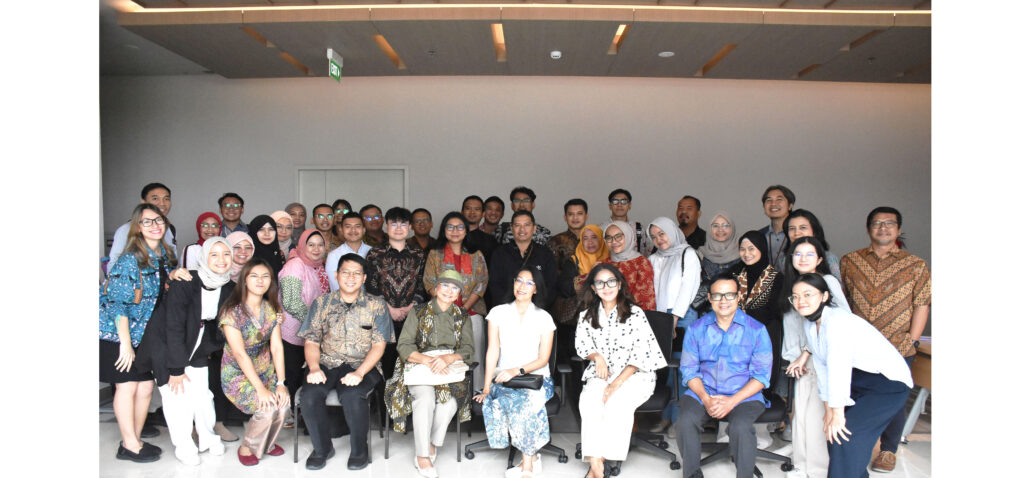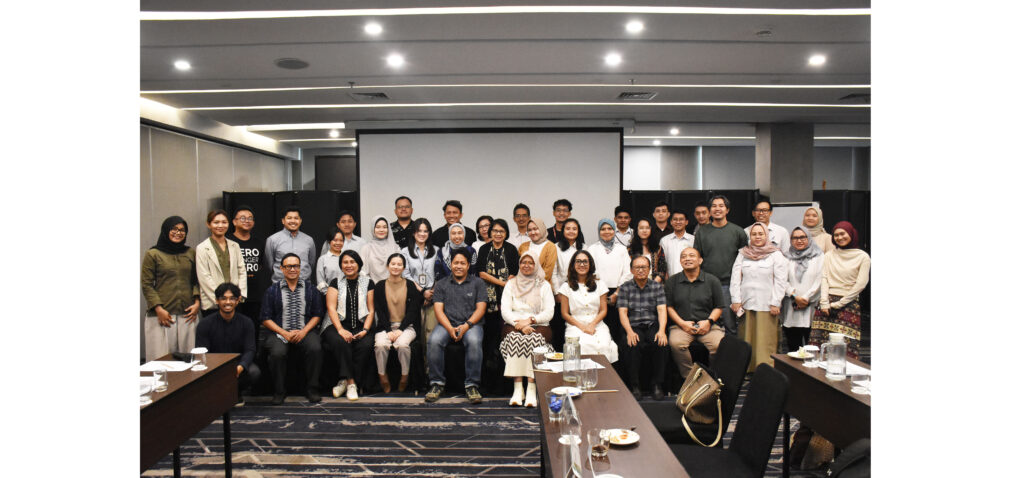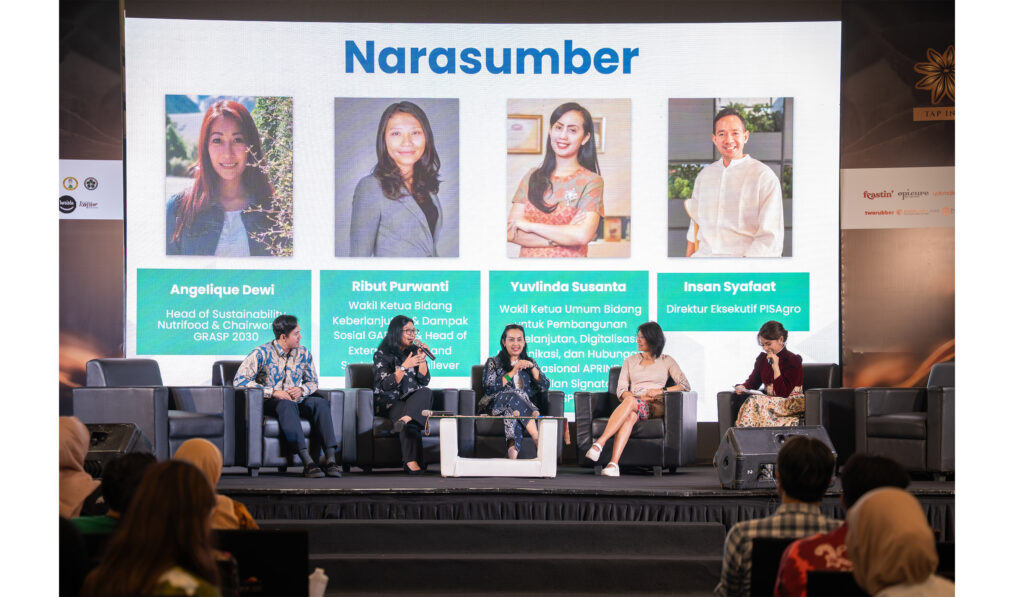
Forum Dialog Memperkuat Kemitraan Publik–Swasta untuk Penanganan Susut dan Sisa Pangan (SSP) di Jawa Barat, Bandung, 23 Januari 2026
Indonesia Business Council for Sustainable Development (IBCSD) melalui inisiatif GRASP 2030
(Gotong Royong Atasi Susut dan Sisa Pangan di 2030) berkolaborasi dengan Pemerintah
Provinsi Jawa Barat menyelenggarakan Forum Dialog Memperkuat Kemitraan Sektor Publik
dan Swasta untuk Penanganan Susut dan Sisa Pangan yang Mendukung Sistem Pangan
Berkelanjutan dan Ekonomi Hijau di Jawa Barat. Kegiatan ini berlangsung di Sheraton Hotel
Bandung pada Jumat, 23 Januari 2026.
Forum dialog ini menghadirkan perwakilan Badan Pangan Nasional, perwakilan Pemerintah
Provinsi Jawa Barat, dunia usaha, akademisi, organisasi masyarakat sipil, dan perwakilan
SPPG. Kegiatan ini menjadi momentum penting untuk membangun kemitraan konkret dalam
mengatasi susut dan sisa pangan (food loss & waste).
Direktur Eksekutif IBCSD, Dr. Indah Budiani, menyampaikan bahwa Provinsi Jawa Barat
memiliki peluang besar untuk menjadi provinsi percontohan nasional dalam penanganan susut
dan sisa pangan berbasis kolaborasi publik-swasta. “Susut dan sisa pangan bukan hanya isu
lingkungan, tetapi juga isu efisiensi, daya saing, dan keberlanjutan usaha. Melalui GRASP
2030, kami mendorong kolaborasi lintas sektor dengan pendekatan yang sejalan dengan SDG
12.3, agar aksi pengurangan susut dan sisa pangan dapat lebih terukur dan berdampak,” jelas
Indah.
Jawa Barat sebagai Wilayah Strategis
Dalam sambutannya, Kepala Bappeda Provinsi Jawa Barat yang diwakilkan oleh Kepala Bidang
Perekonomian dan Sumber Daya Alam pada Badan Perencanaan Pembangunan Daerah
Provinsi Jawa Barat, Eka Jatnika Sundana, ST., M.Sc menegaskan bahwa Jawa Barat memiliki
peran sangat strategis dalam penanganan susut dan sisa pangan di Indonesia. Dengan jumlah
penduduk terbesar mencapai 50,7 juta jiwa, aktivitas ekonomi pangan yang tinggi, serta status
sebagai salah satu lumbung pangan nasional dengan produksi beras tahun 2025 sebesar 10,23
juta ton GKG, Jawa Barat menjadi wilayah kunci dalam upaya nasional pengurangan SSP.
Namun, Jawa Barat juga tercatat sebagai penghasil sampah terbesar di Indonesia dengan
timbulan mencapai 24.882,78 ton per hari, di mana 39,02% diantaranya merupakan sisa
makanan. Tanpa penanganan serius, kondisi ini berpotensi menambah beban lingkungan,
kesehatan masyarakat, dan inefisiensi ekonomi.
Kolaborasi Multipihak melalui GRASP 2030
Inisiatif GRASP 2030 telah menghimpun 18 perusahaan dan 28 organisasi yang berkomitmen
mengurangi SSP sesuai target SDG 12.3 dan RPJMN 2025-2029. Platform ini mendorong
kolaborasi strategis dengan pendekatan Target–Measure–Act, serta memfasilitasi panduan redistribusi pangan dan forum kerja lintas sektor. Dengan semangat gotong royong, Jawa Barat diharapkan menjadi provinsi percontohan dalam pengurangan SSP dan implementasi
pembangunan rendah emisi berbasis kolaborasi multipihak.
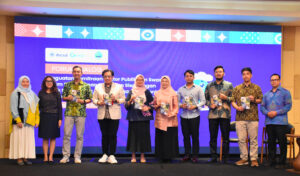
(Dari kiri ke kanan) Dr. Indah Budiani (Direktur Eksekutif IBCSD), Tiur Rumondang (Country
Lead WRAP Indonesia), Isa Dwiyono (Internal Communication & Sustainability Specialist Kalbe
Nutritionals), Eka Jatnika Sundana (Kabid PSDA.Bappeda Jawa Barat) Nita Yulianis (Direktur
Kewaspadaan Pangan dan Gizi, BAPANAS), Linda Al Amin (Kepala Dinas Ketahanan Pangan
dan Peternakan Provinsi Jawa Barat), Risky Fauzi Wibowo (Sustainability Lead Superindo),
M. Gumilang Pramuwidyatama (Pembina Foodbank Bandung), Riza Zakaria (CFO PT BIKI),
dan Aloysius Wiratmo (Program Manager GRASP 2030)
